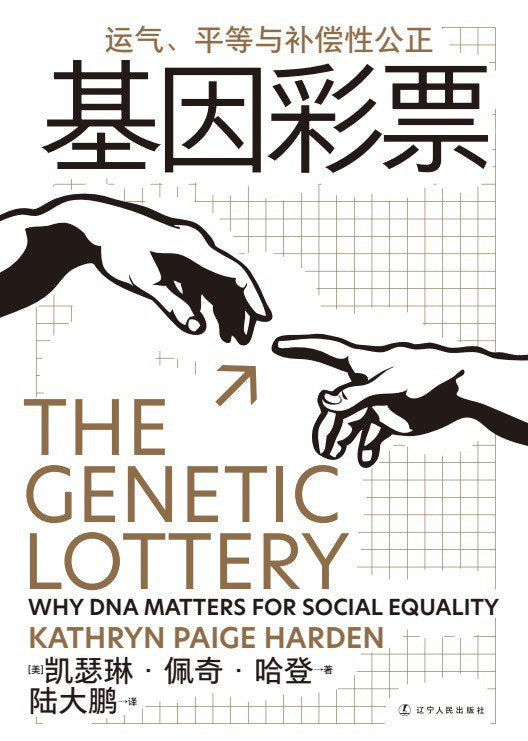WULOLIFE
《基因彩票》作者: (美) 凯瑟琳·佩奇·哈登 译者: 陆大鹏 辽宁人民出版社科学新知图书一周热门榜
《基因彩票》作者: (美) 凯瑟琳·佩奇·哈登 译者: 陆大鹏 辽宁人民出版社科学新知图书一周热门榜
Couldn't load pickup availability
Description
内容简介· · · · · ·
才能实现真正的社会平等。
。
《经济学人》2021年度好书。
#编辑推荐#
驳斥优生学5大谬论,重视基因不等于丛林法则
谬论1:一切都是遗传,人为干预没用。
谬因决定一切。
谬论3:要把劣等基因排除在医疗保险之外。
4:智力是天生的,有人天生就比别人优秀。
5:基因好的人就该获得更多资源。
走出5大误区,不做基因盲
1:无视遗传差异,浪费资源,拖慢科学进步。
2:假装考虑环境因素,误认为所有人机会平等。
误区3:抵制使用基因信息,但又不改变市场和制度。
4:臣服优绩主义,忽视遗传的运气。
误区5:误以为所有人在生物学层面上完全一样。
的5项核心原则
1:利用基因科学,加快有效干预,减少不平等。
原则2:利用基因数据,最大限度提升每个人的能力。
3:利用遗传信息,让每个人都能享受更好的社会保障。
4:承认遗有道德。
5:社会制度应该有利于不占基因优势的人。
#各界推荐#
哈登正在展开一场两条战线的运动,在她的左边,那些人假定基因无关紧要;而在她的右边,那些人坚信基因就是一切。——《纽约客》
引人入胜,可读性强。哈登破除了这样的迷思:基因就是命运,它们的影响要么是百分百之百的,要么就是零;从事遗传学研究的人都是优生主义者。她提出了一个有说服力的观点,即如果我们了解基因,这能帮助我们努力实现一个更公平的社会。——多萝西 ·
这是一本有思想、有胆识、引人入胜的书。哈登不同意将遗传差异视为等级制度的理由,也不同意拒绝研究基因对社会分层的影响。她认为,如果我们要创造一个更公正的社会,必须理解行为遗传学的发现。——彼得·辛格
对平等主义理想的追求,并不依赖人类基因同一性的事实,但也并非与此无关。或许由于我们足够相似,人不再将那些因遗传差异造成的不幸、悲苦和不公视为自然,并心安理得地接受。在这个意义上,对平等理想的承诺,体现了人类对自己同胞的善意与悲悯。——刘擎
凯瑟琳· 佩奇·哈登提出了一个新方向,我把它总结为“补偿性的公正”。意思是说,首先,一个社会应该正视基因造就的基于运气的不平等 。们内在多的机会通过努力获得成就。——张笑宇
#内容简介#
本书是一部与基因科学有关的普著作。第一部分介绍了基因科学的最新进展,尤其是全基因组关联研究( GWAS)和体重方面的差异、预测疾病和学业的成功等。第二部作者结合自己身为人母的经历,论证了为什么我们拒绝承认基因的力量,以及为什么我们要创造一个公平的社会,就必须承认基因运气的作用.
作者简介· · · · · ·
凯瑟琳·佩奇·哈登(Kathryn Paige Harden ,为遗传学实验室,并参与领导得克萨斯双生子项目。曾发表100多篇关于遗传对复杂人类行为影响的科学论文。2017年,她因对遗传学和人类个体差异研究的杰出科学贡献而荣获美国心理学会颁发的国家级奖项。
陆大鹏,英德译者,南京大学英美文学硕士,译有《1453:君士坦丁堡之战》《海洋帝国》《阿拉伯的劳伦斯》《金雀花王朝》等。曾获《北京青年报》2015年度译者,《经济观察书评》2015年度译者,单向街书店文学奖2016中国年度知道分子
